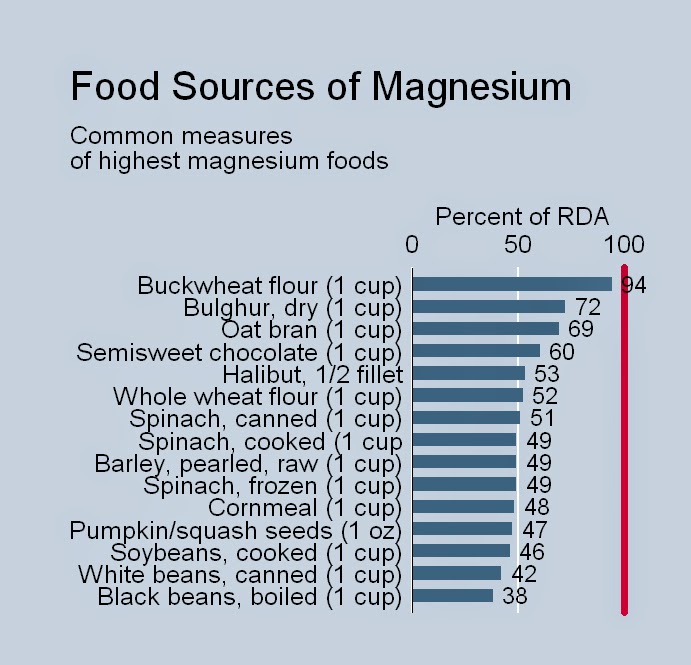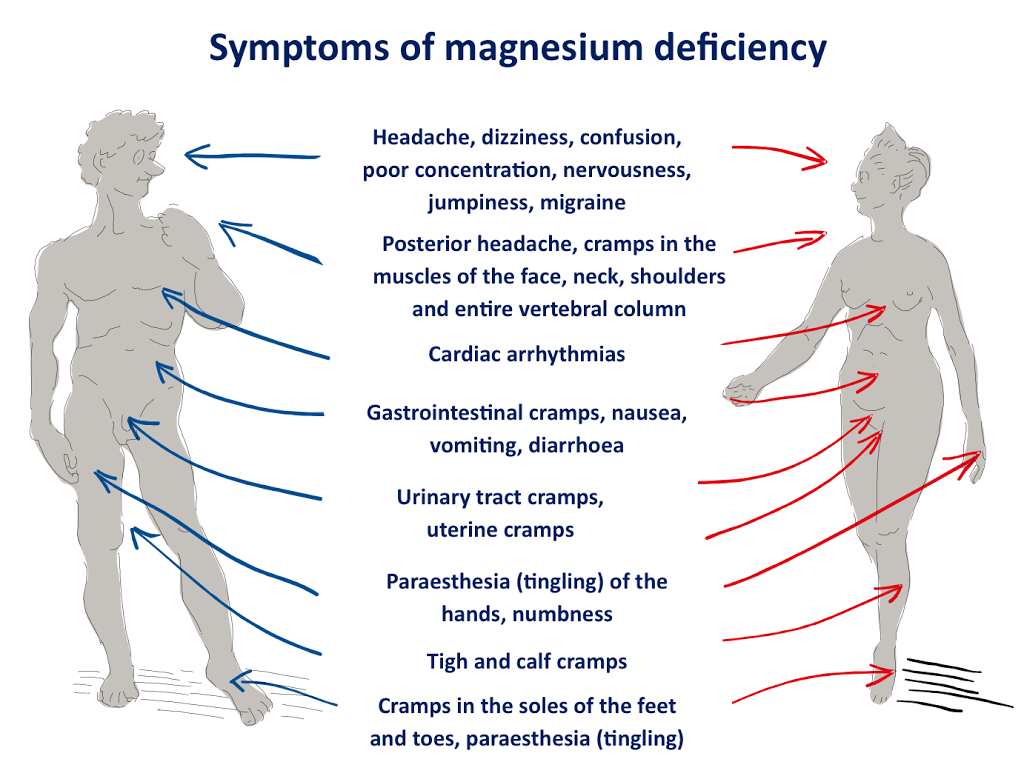What is magnesium and why is it important?
Magnesium is the fourth most abundant mineral in the body and is essential to good health. Approximately 50% of total body magnesium is found in our bones. The other half is found predominantly inside cells of body tissues and organs. Only 1% of it is found in blood, but the body works very hard to keep blood levels of it constant.
Where to find it?
Buckwheat flour, dry bulgur, oat bran, semi-sweet chocolate, halibut, whole wheat flour, canned/cooked/frozen spinach, cornmeal, pumpkin/squash seeds, soy/white/black beans are all great ways to intake your magnesium through food.

food sources of magneisum
Magnesium is also needed for more than 300 biochemical reactions in the body. It helps maintain normal muscle and nerve function, keeps heart rhythm steady, supports a healthy immune system, and keeps bones strong. It also helps regulate blood sugar levels, promotes normal blood pressure, and is known to be involved in energy metabolism and protein synthesis. There is an increased interest in the role of magnesium in preventing and managing disorders such as hypertension, cardiovascular disease, and diabetes. Dietary magnesium is absorbed in the small intestines. It is excreted through the kidneys.
Magnesium is especially important for people with diabetes, cardio-vascular disease, osteoporosis, muscle tension, muscle cramping, restless legs, and many other conditions.
 |
| safeandhealthy.com |

